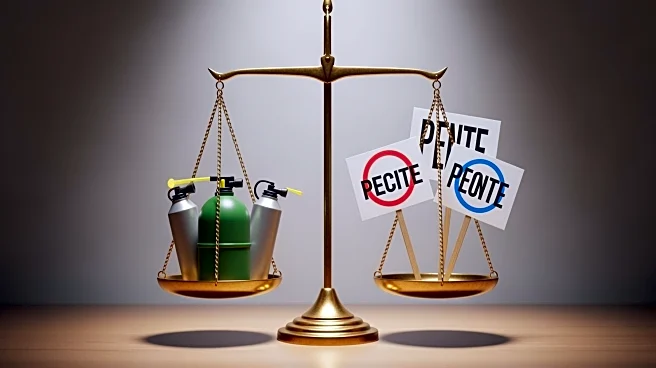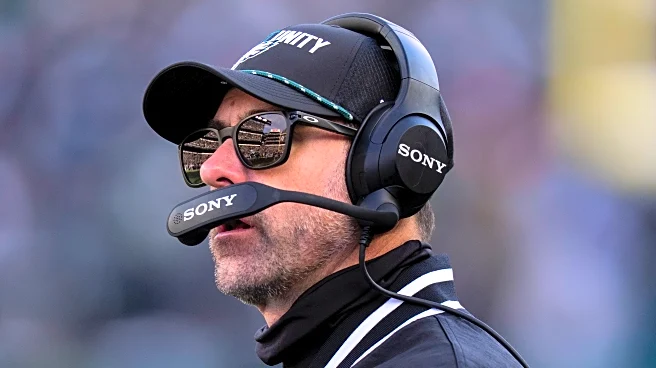What's Happening?
U.S. District Judge Sara Ellis has ordered Border Patrol Chief Greg Bovino to sit for questioning in a lawsuit concerning the use of force by federal immigration agents against journalists and peaceful
protesters. The lawsuit, filed by Block Club Chicago and other organizations, challenges the tactics used by ICE and Border Patrol during recent protests in Chicago. Judge Ellis expressed concerns that federal agents violated a temporary order banning the use of riot-control weapons against journalists and protesters. During a hearing, Ellis questioned ICE Deputy Field Office Director Shawn Byers and Customs and Border Protection Deputy Incident Command Kevin Harvick about incidents in Albany Park and East Side where tear gas was deployed. The judge highlighted discrepancies in arrest figures and raised concerns about the preservation of surveillance footage from the Broadview facility.
Why It's Important?
The legal scrutiny of ICE and Border Patrol's tactics underscores ongoing tensions between federal immigration enforcement and civil rights groups. The use of tear gas and other riot-control measures against journalists and protesters raises significant concerns about freedom of the press and the right to peaceful assembly. The outcome of this lawsuit could impact federal policies on crowd control and the treatment of journalists during protests. It also highlights the broader debate over immigration enforcement practices in urban areas, potentially influencing public opinion and policy decisions at local and national levels.
What's Next?
A preliminary injunction hearing is scheduled for November 5, where further legal arguments will be presented. The judge has requested a preservation order to ensure surveillance footage is maintained, which could be crucial evidence in the case. The lawsuit's progression may lead to changes in how federal agents are trained and deployed during protests, particularly concerning interactions with journalists and peaceful demonstrators. Stakeholders, including civil rights organizations and government agencies, are likely to closely monitor the case's developments.
Beyond the Headlines
The case raises ethical questions about the balance between national security and civil liberties. It may prompt discussions on the accountability of federal agencies and the transparency of their operations. The legal proceedings could also influence cultural perceptions of law enforcement's role in managing public demonstrations, potentially leading to long-term shifts in policy and public attitudes towards immigration enforcement.












